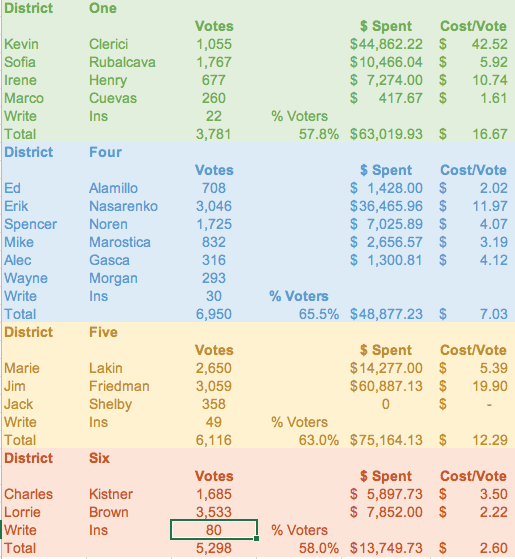How Will Governing Be Better With A New City Council?

“The election is over. It’s time for the work of governing to begin.”
—Sen. Tom Daschle
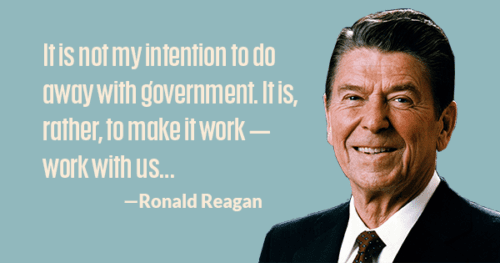
The 2020 City Council election marked a new beginning for governing Ventura. The newly elected Councilmembers campaigned to drive change at City Hall. Now, the emphasis for the newcomers will be to shift from campaigning to governing.
Three New Councilmembers
2020 is the first election for Ventura Districts 2, 3 and 7. The city shifted from citywide to district elections in 2018 when voters elected four City Councilmembers.
Doug Halter defeated incumbent Christy Weir in District 2. Mike Johnson won an open seat in District 3 vacated by Mayor Matt LaVere, who voters selected as a County Supervisor. Voters selected Joe Schroeder in District 7 to replace retiring Councilmember Cheryl Heitmann.
Campaign Spending
This year’s candidates raised a record amount of money. Campaigning was in districts instead of citywide. One would think the amount of money needed would be less, but that has not proven to be the case.
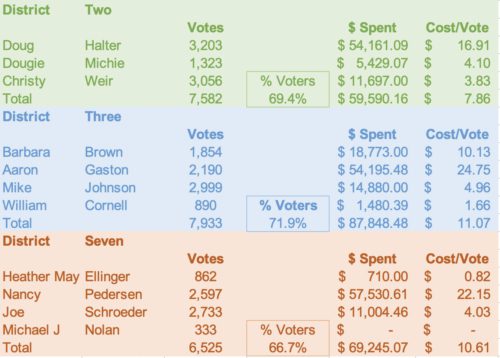
The candidates raising the most money were Nancy Pedersen, $57,531; Aaron Gaston, $54,195; and Doug Halter, $54,161. Of the three top fundraisers, only Doug Halter won his district. (These numbers will increase. The final campaign finance report is due January 31, 2021)
To put this year’s spending into context, the total amount raised for three districts was 7.9% higher than in 2018 for four districts ($216,684 vs. $200,811).
Voter Turnout
High numbers of voters turned out in each district. All three districts had more people vote than even District 4, with the highest voter in 2018.
The districts were more competitive this year than in 2018. Only one candidate received more than 3,000 votes compared to three out of four winning candidates in 2018.
Platforms For Governing
Each candidate presented his top priorities for the city to the voters. Here’s what each promised.
Doug Halter, District 2
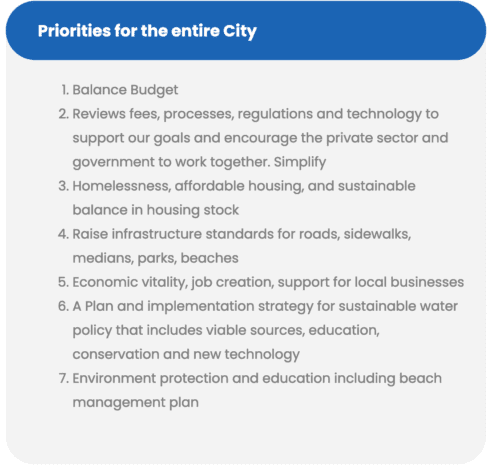
Mike Johnson, District 3
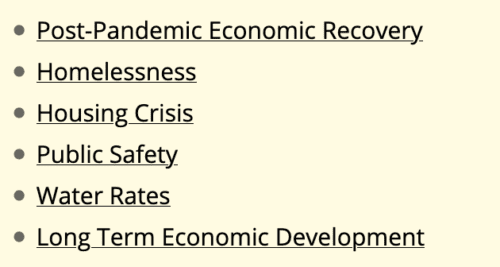
Joe Schroeder, District 7
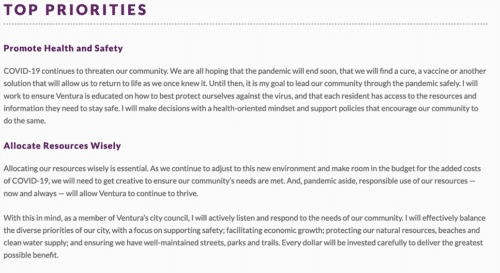
Priorities In Common
There were some commonalities between the priorities. Yet, the candidates missed the mark on one crucial issue.
All three candidates promised to deliver economic vitality while governing. Improving the economy is the most specious of any City Council candidate’s priorities. Candidates offer this promise during each election cycle. Yet, the Council has little control over Ventura’s economic prospects. Councilmembers can’t control which businesses move to Ventura. Nor can they determine which existing companies should expand. When the Council does meddle in selecting companies, the city has experienced catastrophes. One only needs to remember the Brooks Institute debacle.
There is one area over which the City Council can control the business environment. They can make it easy for businesses to start-up or expand. Easing regulations and reducing approval time can stimulate business. We’ll see if this freshman class of Councilmembers will enact changes in this area. Their predecessors have not.
What All Three Are Missing
All three winners failed to mention one opportunity to reduce regulations and cut bureaucracy. Not one of them prioritized recovering from the Thomas Fire. It’s been three years since the disaster, and the city has not recovered economically. Victims have rebuilt only 190 of the 535 houses destroyed in the fire. That’s 35% of the buildings in three years. The City Council promised quick response and expedited procedures. The city waived some fees and added extra city staff to handle the influx of building plans. Yet, it’s hard to argue that Ventura’s response has been quick.
Another glaring omission is addressing the unfunded pension liability deficit. Retirement pensions are the city’s number one problem. Ventura currently has a $215.1 million obligation. That number continues to grow. CalPERS (the California Public Employees retirement fund) demands rapidly increasing contributions from Ventura. We will have permanent increases of at least $2 million per year for five to six consecutive years.
Issues
Newly-elected Councilmembers now have to shift their focus. The entire campaign focused on convincing district voters their interests came first. Once elected, they must change that focus to represent the whole city.
The top issues facing the City Council continue to be water, homelessness, budget deficits, pensions, economic stability and growth.
Two of the three new Councilmembers list water as a priority, but none of them has a stated water policy. Without alternative thinking, water ratepayers will have no choice but to surrender to Ventura Water’s strategy for VenturaWaterPure. Citizens should balk at this policy for both health & safety reasons and millions in unnecessary cost.
Homelessness is a priority for two new Councilmembers. Homelessness is an intractable problem showing all the signs of a failed paradigm. Ventura continues to spend more money on the homeless, yet the outcomes continue to worsen. What’s more, the COVID-19 recession will make more people unsheltered in the future. Court rulings and voter initiatives have made it increasingly difficult for public safety to help. Ventura needs a collaborated effort and some creative thinking to make any headway against the problem.
The One Issue Plaguing Ventura’s Long-Term Vitality
The incoming City Council will have to sharpen their pencils to impact the budget deficits and pension liabilities. The economic impact of the pandemic makes this challenge even harder. The city will have reduced sale tax revenue from the business shutdowns and diminished disaster support from Sacramento. Together, it will be harder to meet expenses.
The new Councilmembers must acknowledge that growth, jobs and water availability are inseparable. They also need to recognize the opposition to more houses (the NIMBYs) by some in the community. Forward progress on growth means accommodating, integrating and compromise.
Editors Comments
We have been through two election cycles now, and districts have elected all of the City Councilmembers. While it’s still too early to evaluate the impact of moving to district voting entirely, some things are becoming clear.
First, campaign spending is increasing unabatedly. In the last two elections, spending has reached record levels. It used to be that a candidate for City Council had to spend money throughout the city to get voters. Under district voting, candidates spend money to influence their 15,000 potential voters. On the surface, one would think it would take less money to reach a smaller group of people, yet spending is skyrocketing.
Second, some of the campaign spending is money spent by Political Action Committees (PACs) to support candidates they favor. The chief PACs are the fire and police unions and the Chamber of Commerce. This year PACs spent over $104,000 to support Aaron Gaston, Doug Halter and Nancy Pedersen.
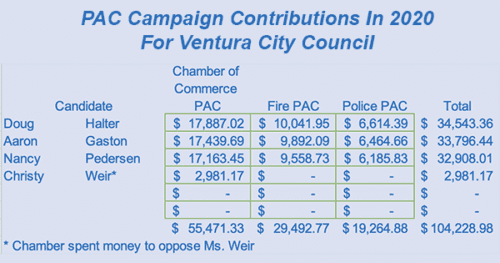
In 2018, PACs spent over $84,000 to support Kevin Clerici, Jim Friedman and Erik Nasarenko. The year-over-year increase in PAC spending is 30.7%.
What We Learned About PAC Spending
The PACs supported six candidates, only three of whom were elected. What does this tell us?
- Voters don’t always vote for the candidate spending the most money— good news in an era of rising campaign expenditures.
- The PACs’ record for getting the candidates they want into office is only partially successful. In turn, it may also mean that the PACs’ influence over the City Council may not be as strong as it has in the past.
- Candidates are willing to spend large sums of money for the chance at governing. Voters should scrutinize from where their preferred candidates receive their funds.
- Citizens United determined that money spent in political campaigns is free speech. The PACs know this and contribute more to campaigns than any individual contributor. Who will the Councilmembers listen to when there is a crucial decision to make?
Third, if diverse representation is the reason for voting by districts, then the 2020 election contradicts that intent. All three elected Councilmembers are old, white males. Two of the three replaced women on the Council. It’s too early to draw any conclusions from two elections, but it appears that voters are electing candidates that revert to the old norm to govern them.
Fourth, voter turnout was unprecedented for the City Council election. The overall numbers, and the percentage of eligible voters in each district, were the highest recorded. Strong voter turnout is good news. Democracy works best when voters engage.
Finally, it’s up to each individual to hold our elected officials accountable. The commitments they make during the campaign must translate into action while they are governing. Otherwise, they’re just empty promises. It’s up to you to make sure the Councilmembers live up to their commitments.
Here’s How You Can Write Directly To Your City Councilmember
Below you’ll find the photos of our current City Council. Click on any Councilmember’s photo and you’ll open your email program ready to write directly to that Councilmember.
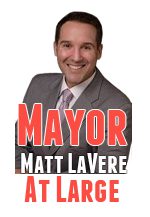 |
 |
|
 |
 |
|
 |
 |
|
 |
For more information like this, subscribe to our newsletter, Res Publica. Click here to enter your name and email address.



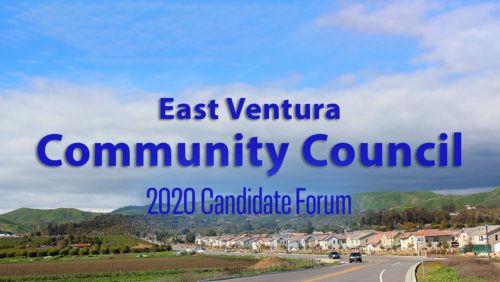



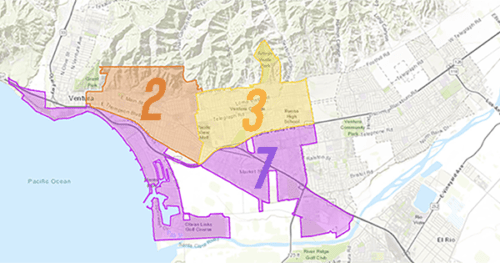
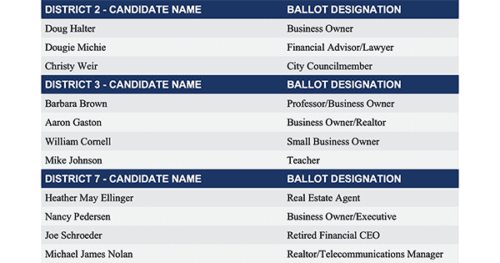 District 2
District 2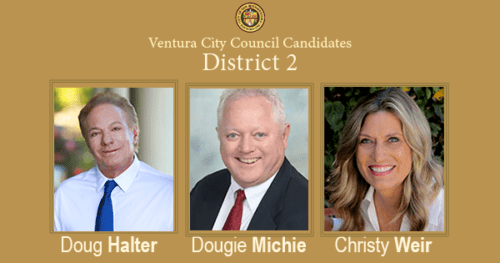
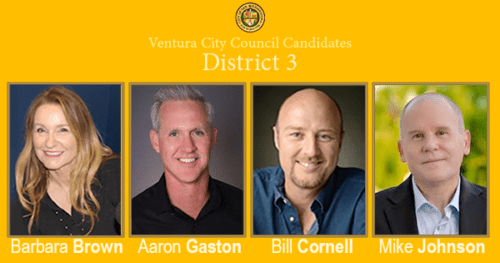
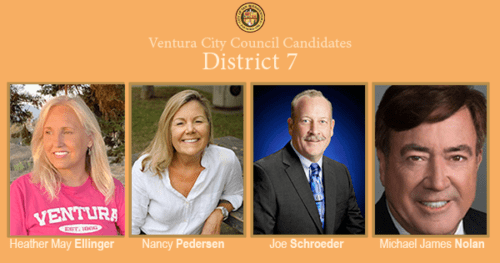
 Water will be among the costliest issues the City Council will face in the next four years. Ventura Water is asking the Council for over $300 million, making it as expensive to the city as public safety.
Water will be among the costliest issues the City Council will face in the next four years. Ventura Water is asking the Council for over $300 million, making it as expensive to the city as public safety.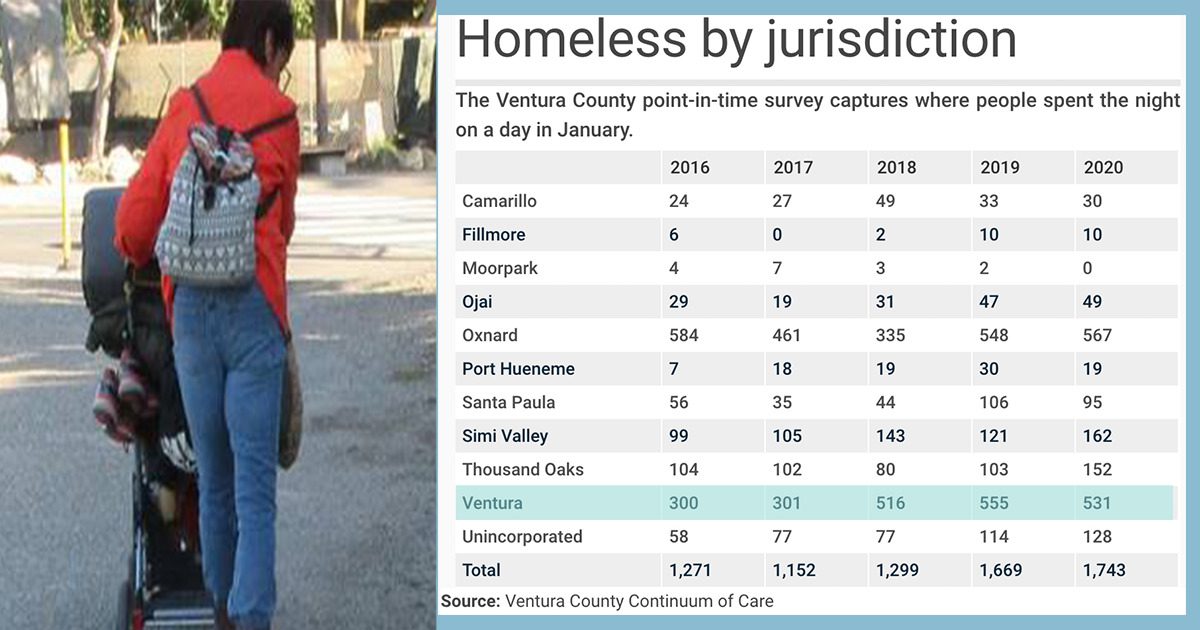



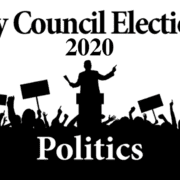


 Candidates for the 2020 City Council election must concentrate on the Wishtoyo Consent Decree, and the impact of the decree in the next decade. That Federal Decree requires Ventura to stop putting a majority of its treated wastewater into the Santa Clara River estuary, beginning in January 2025 through 2030. To do so will be an enormous cost to the city.
Candidates for the 2020 City Council election must concentrate on the Wishtoyo Consent Decree, and the impact of the decree in the next decade. That Federal Decree requires Ventura to stop putting a majority of its treated wastewater into the Santa Clara River estuary, beginning in January 2025 through 2030. To do so will be an enormous cost to the city. Ventura Water has confused the City Council by combining two different ideas to falsely heighten the urgency to drink wastewater. In 2011, Venturans were told, “We are short of water.” Ventura Water proposed treating the wastewater we currently dump into the Santa Clara River into potable water at the cost of $1 Billion.
Ventura Water has confused the City Council by combining two different ideas to falsely heighten the urgency to drink wastewater. In 2011, Venturans were told, “We are short of water.” Ventura Water proposed treating the wastewater we currently dump into the Santa Clara River into potable water at the cost of $1 Billion.  Ventura Water will undoubtedly request a water rate increase from this next City Council. They will claim the money is for VenturaWaterPure or to improve the city’s water infrastructure. Water rates already went up by $220 million with water and wastewater increases in 2012-13. Any Councilmember and any candidate for City Council should be able to explain how Ventura Water spent the $220 million and why another rate hike is needed.
Ventura Water will undoubtedly request a water rate increase from this next City Council. They will claim the money is for VenturaWaterPure or to improve the city’s water infrastructure. Water rates already went up by $220 million with water and wastewater increases in 2012-13. Any Councilmember and any candidate for City Council should be able to explain how Ventura Water spent the $220 million and why another rate hike is needed. Ventura has 555 homeless people, according to the 2019 Point-in-Time count. Meredith Hart, Director of Ventura’s Safe & Clean program, believes the 2020 count will be higher. Ventura spends on its homeless are between $3.89-$4.59M per year.
Ventura has 555 homeless people, according to the 2019 Point-in-Time count. Meredith Hart, Director of Ventura’s Safe & Clean program, believes the 2020 count will be higher. Ventura spends on its homeless are between $3.89-$4.59M per year.
